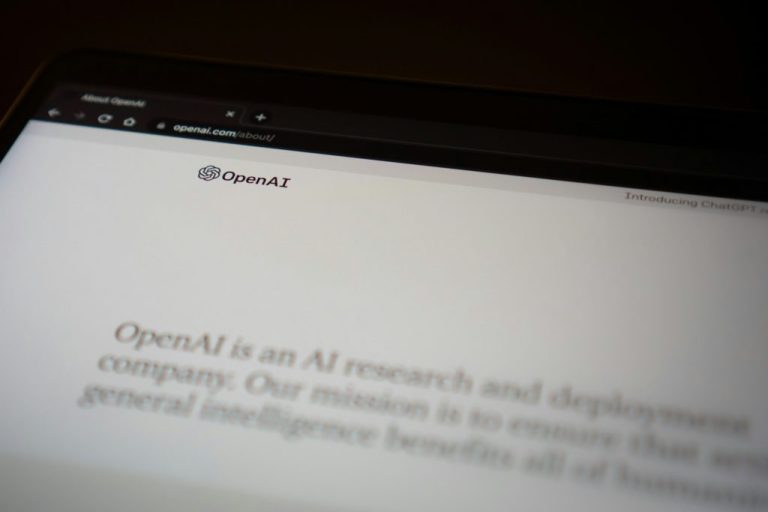Unlocking Machine Learning Potential: Brian Flüg on Data Lake Advantages with Qubole
Insights on Data Lakes for Machine Learning
Data lakes provide significant advantages for machine learning when leveraged effectively. According to Brian Flüg, a Solutions Architect at Qubole, these benefits are optimized through partnerships that bring experienced guidance.
Advantages of Using Data Lakes
A secure and open data lake simplifies deployment processes and helps companies to mitigate risks while reducing operational costs. Data scientists are enabled to quickly build, deploy, and refine their models thanks to features like experiment tracking and ready-to-use integrations with tools such as RStudio, H2O.ai, and Datarobot. Moreover, end-to-end workflows supported by schedulers and Airflow enhance productivity and streamline the machine learning process.
Developers can increase their productivity via features like code auto-complete, code comparison, visualizations without code (QVIZ), version control, and hands-free dependency management. Access to cloud storage and data catalogs is simplified, allowing for seamless automation of infrastructure provisioning for machine learning. This process minimizes costs while facilitating growth without compromising performance. The system is designed to manage workloads effectively, irrespective of user numbers or model variations.
Leveraging Automation for Rapid Changes
In rapidly changing environments like those seen during the pandemic, the ability to harness vast amounts of data is crucial. Data leaders must utilize streaming analytics, machine learning, and artificial intelligence to make well-informed decisions and adapt to evolving circumstances. The importance of optimizing data lakes and employing automation for organizational success cannot be overstated, especially in times of crisis.
Qubole’s Capabilities for Data Scientists
Qubole is tailored to support data scientists at all levels of expertise, from novices to seasoned machine learning professionals. The platform provides tools for machine learning, artificial intelligence, analytical automation, and both streaming and ad-hoc analytics. A single, cloud-native platform encompasses the entire data science life cycle, allowing teams to manage data with comprehensive visibility.
Data exploration and visualization are made easy through Qubole’s SQL Workbench, alongside integrations that support any preferred BI tools via JDBC and ODBC connectors. Additionally, capabilities for rapid prototyping and model building include robust support for machine learning frameworks such as Spark, MLib, MXNet, TensorFlow, Keras, SciKit Learn, Python, and R. An integrated Notebook service enhances collaboration among data scientists.
The Role of Streaming Data Pipelines
Implementing streaming data pipelines can significantly enhance the utility of real-time data for machine learning and ad-hoc analytics. Qubole’s Pipelines Service serves as a Stream Processing Service that effectively tackles use cases involving real-time ingestion, decision-making, machine learning, and reporting.
Implementing a data pipeline can significantly speed up the development process. Users can set up a pipeline in mere minutes without needing to write any code, allowing for immediate deployment. A built-in testing framework facilitates the testing and debugging of new pipelines, ensuring connectivity and business logic are sound while minimizing downtime and preventing data loss.
Moreover, streamlined data lake operations enhance data management and improve consistency. Users can easily detect invalid records and schema mismatches by configuring alerts, which aid in preventing data loss. Invalid records can be cleansed and reprocessed, with options to store them in a configurable cloud storage solution. Comprehensive operational management paired with insightful analytics enables organizations to control costs effectively.
Qubole will share their valuable expertise at the upcoming AI & Big Data Expo Europe, happening on November 23-24, 2021, with booth number 309. Brian Flüg is also scheduled to speak at the virtual edition of the event on December 1, 2021. More information about his sessions and registration details can be found on the event’s website.
The Role of Machine Learning in Enhancing Cloud-Native Container Security
Innovative Machine Learning Uses Transforming Business Applications
In an exciting development, educators in England have received approval to incorporate Artificial Intelligence (AI) into their teaching practices. This shift is expected to enhance educational outcomes and engage students in new technologies.
Similarly, AI continues to make waves in the cryptocurrency sector. Its capabilities are being harnessed to improve trading strategies and enhance security measures, showcasing its transformative potential within financial markets.
On a broader scale, industry leaders such as Sam Altman from OpenAI are heralding what he describes as the dawn of superintelligence. As advancements in AI technology accelerate, discussions around ethical considerations and societal implications are becoming increasingly vital.
Stay Updated
For those interested in staying informed about the latest in tech news and premium content, consider subscribing to our newsletter.
Categories
- Applications
- Companies
- Deep & Reinforcement Learning
- Enterprise
- Ethics & Society
- Industries
- Legislation & Government
- Machine Learning
- Privacy
- Research
- Robotics
- Security
- Surveillance
About Us
We are dedicated to delivering pioneering insights across various technology sectors. Join us in exploring the future landscape shaped by advancements in AI and related fields.
Here is a list of countries and territories, showcasing the diversity of regions around the world:
- Island and McDonald Islands
- Holy See
- Honduras
- Hong Kong
- Hungary
- Iceland
- India
- Indonesia
- Iran
- Iraq
- Ireland
- Isle of Man
- Israel
- Italy
- Jamaica
- Japan
- Jersey
- Jordan
- Kazakhstan
- Kenya
- Kiribati
- Korea, Democratic People’s Republic of
- Korea, Republic of
- Kuwait
- Kyrgyzstan
- Lao People’s Democratic Republic
- Latvia
- Lebanon
- Lesotho
- Liberia
- Libya
- Liechtenstein
- Lithuania
- Luxembourg
- Macao
- Madagascar
- Malawi
- Malaysia
- Maldives
- Mali
- Malta
- Marshall Islands
- Martinique
- Mauritania
- Mauritius
- Mayotte
- Mexico
- Micronesia
- Moldova
- Monaco
- Mongolia
- Montenegro
- Montserrat
- Morocco
- Mozambique
- Myanmar
- Namibia
- Nauru
- Nepal
- Netherlands
- New Caledonia
- New Zealand
- Nicaragua
- Niger
- Nigeria
- Niue
- Norfolk Island
- North Macedonia
- Northern Mariana Islands
- Norway
- Oman
- Pakistan
- Palau
- Palestine, State of
- Panama
- Papua New Guinea
- Paraguay
- Peru
- Philippines
- Pitcairn
- Poland
- Portugal
- Puerto Rico
- Qatar
- Romania
- Russian Federation
- Rwanda
- Réunion
- Saint Barthélemy
- Saint Helena, Ascension and Tristan da Cunha
- Saint Kitts and Nevis
- Saint Lucia
- Saint Martin
- Saint Pierre and Miquelon
- Saint Vincent and the Grenadines
- Samoa
- San Marino
- Sao Tome and Principe
- Saudi Arabia
- Senegal
- Serbia
- Seychelles
- Sierra Leone
- Singapore
- Sint Maarten
- Slovakia
- Slovenia
- Solomon Islands
- Somalia
- South Africa
- South Georgia and the South Sandwich Islands
- South Sudan
- Spain
- Sri Lanka
- Sudan
- Suriname
- Svalbard and Jan Mayen
- Sweden
- Switzerland
- Syria Arab Republic
- Taiwan
- Tajikistan
- Tanzania, the United Republic of
- Thailand
- Timor-Leste
- Togo
- Tokelau
- Tonga
- Trinidad and Tobago
- Tunisia
- Turkmenistan
- Turks and Caicos Islands
- Tuvalu
- Türkiye
- US Minor Outlying Islands
- Uganda
- Ukraine
- United Arab Emirates
- United Kingdom
- United States
- Uruguay
- Uzbekistan
- Vanuatu
- Venezuela
- Viet Nam
- Virgin Islands, British
- Virgin Islands, U.S.
- Wallis and Futuna
- Western Sahara
- Yemen
- Zambia
- Zimbabwe
- Åland Islands








